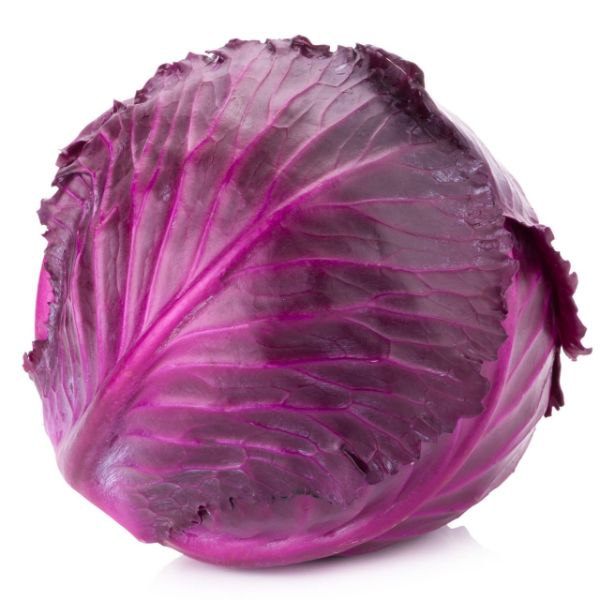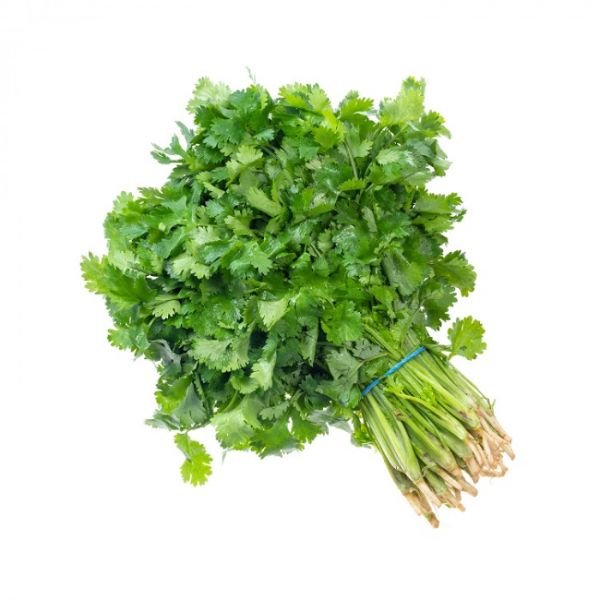Category:
Vegetables
Red Cabbage - 1 Piece (+/-50gm) - كرنب أحمر
Nutrition Facts of Red Cabbage Red cabbage, belonging to the Brassica family, is a vibrant and nutritious vegetable known for its stunning color and numerous health benefits. Packed with essential vitamins, minerals, and antioxidants, this cruciferous vegetable offers a range of nutritional advantages. Nutritional Profile:
- Vitamins: Red cabbage is a rich source of vitamin C, providing more than 50% of the recommended daily intake in just one cup. It also contains vitamin K, vitamin A, vitamin B6, and folate.
- Minerals: It contains minerals like manganese, potassium, calcium, magnesium, and iron, contributing to various bodily functions.
- Antioxidants: Red cabbage is abundant in antioxidants like anthocyanins, which give it its distinct color and offer anti-inflammatory and potential cancer-fighting properties.
- Fiber: It is a good source of dietary fiber, aiding in digestion and promoting gut health.
- Heart Health: The antioxidants and fiber in red cabbage contribute to heart health by reducing cholesterol levels and supporting healthy blood pressure.
- Immune System Support: Its high vitamin C content helps boost the immune system, aiding in the body's defense against infections and illnesses.
- Digestive Health: The fiber in red cabbage promotes healthy digestion and can help prevent constipation.
- Cancer Prevention: The presence of antioxidants, particularly anthocyanins, may have potential in reducing the risk of certain cancers.
Category: Vegetables
Tags: rødkål, Rotkohl, κοκκινολάχανο, लाल गोभी, 赤キャベツ
Related products
-
Coriander Leaves – 100gm (+/-50gm) – اوراق الكزبرة
Rated 0 out of 51.50 د.إOriginal price was: 1.50 د.إ.1.25 د.إCurrent price is: 1.25 د.إ.Add to basketAdd to WishlistAdd to Wishlist -
Asparagus – 1 KG (+/-50gm) – نبات الهليون
Rated 0 out of 5Read moreAdd to WishlistAdd to Wishlist -
Beans – 1 KG (+/-50gm) – فول
Rated 0 out of 511.99 د.إOriginal price was: 11.99 د.إ.9.99 د.إCurrent price is: 9.99 د.إ.Add to basketAdd to WishlistAdd to Wishlist -
Capsicum Red- 1 KG (+/-50gm) – الفليفلة الحمراء
Rated 0 out of 515.00 د.إOriginal price was: 15.00 د.إ.10.99 د.إCurrent price is: 10.99 د.إ.Add to basketAdd to WishlistAdd to Wishlist
-
Nectarine /kg
28.00 د.إOriginal price was: 28.00 د.إ.23.00 د.إCurrent price is: 23.00 د.إ.Rated 0 out of 5 -
Apricot /pack
27.00 د.إOriginal price was: 27.00 د.إ.23.00 د.إCurrent price is: 23.00 د.إ.Rated 0 out of 5 -
Fresh Green plum /pack
18.00 د.إOriginal price was: 18.00 د.إ.14.99 د.إCurrent price is: 14.99 د.إ.Rated 0 out of 5 -
Fresh Almond /pack orgin:Lebanon
18.00 د.إOriginal price was: 18.00 د.إ.14.99 د.إCurrent price is: 14.99 د.إ.Rated 0 out of 5
©Copyright 2023 – All Rights Reserved by Fresh Souq. Desinged & Developed by Collection 3A iT Group













